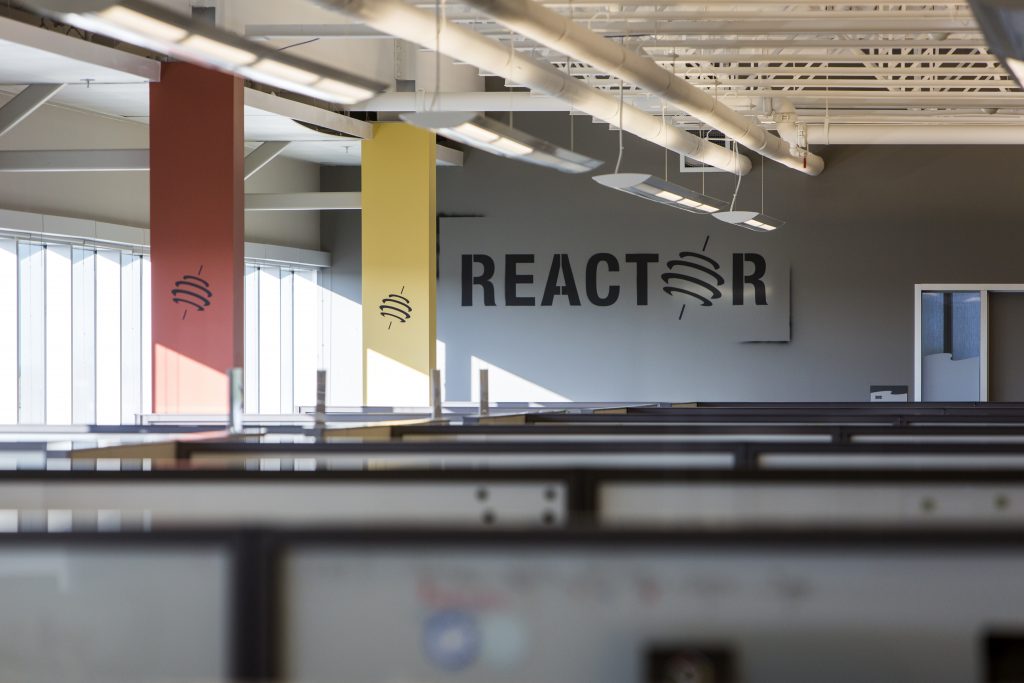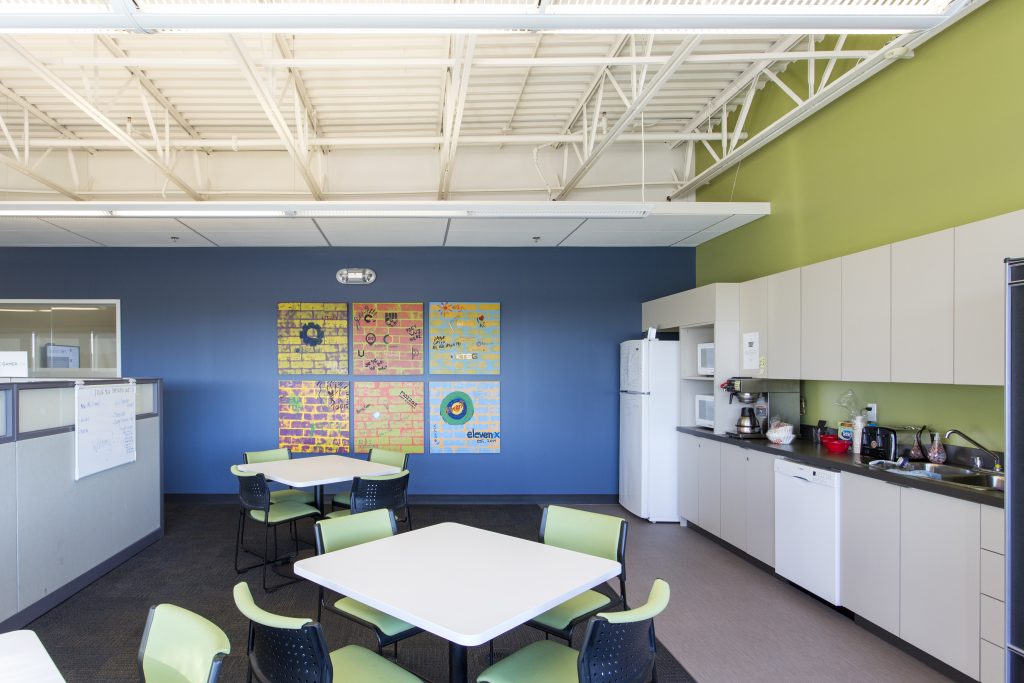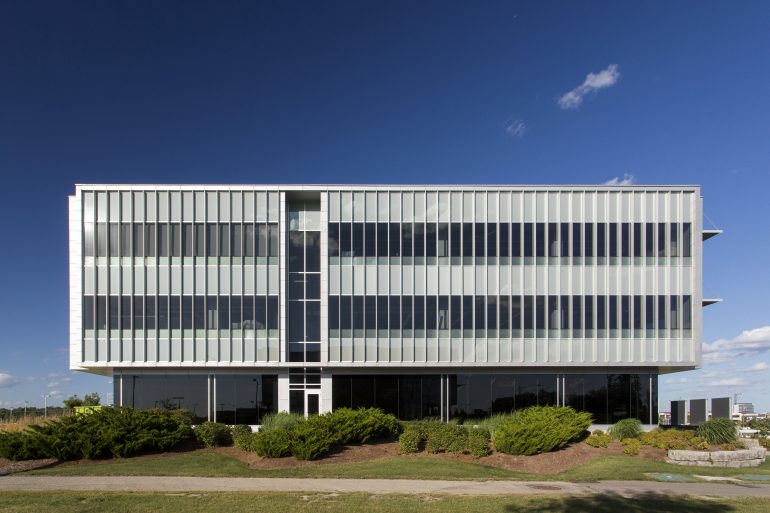The Accelerator Centre announced a major expansion to both its facilities and services this week. The Kitchener-Waterloo tech hub opened Reactor, a new 8,000 square foot facility in the Innotech Building of the David Johnston Research + Technology Park. The Reactor space will be dedicated to AC Momentum, which focuses on early-stage startups, allowing the Accelerator Centre to double the number of companies in the program.
BetaKit had the opportunity to speak AC CEO Paul Salvini about both announcements, and what it means for the Kitchener-Waterloo startup ecosystem.
Okay, so let’s set the context for this announcement. More space is great, but how the space will be used is the important thing.
Absolutely. Space is obviously very important with early-stage companies, as is the whole sort of atmosphere – the environment has to be a creative environment. Of course, you also want access to all the amenities and services.
But really, what we’re trying to achieve is much greater than that. It’s providing a set of services that’s really designed and targeted for early-stage technology-based companies. Given all the experience we have with our flagship accelerator program, to make sure that companies – before they embark on trying to move fast – making sure that they have the idea shaped as well as humanly possible, and that they really understand the market they hope to serve.
How does the expansion facilitate that in specific?
The main thing is capacity. We started the program in our own facility, which had about a quarter of the space. It’s been so enormously successful, even though we only launched it in the fall of last year it quickly filled to capacity, and there was quite a waiting list.
We really felt that there was so many fantastic companies and great founders that we really wanted to find the space to work with more of them. So we were able to find this space across the road, which is 8,000 square feet in the Innotech Building. And we had some control in being able to create an innovative and inspiring space for those early-stage startups.

I’ve been told that the space is going to allow for thirty new companies, so how do you scale up on the support side to handle that influx?
We have a large staff and set of mentors who are dedicated to the program, and we’re scaling up their mentorship hours with every company we bring in.
And depending on the client they’ll need different types of mentorship. It may be in the area of finance, it may be leadership or human resources, it may be in the area of marketing and sales.
Is there an opportunity there with additional space to kind of pair startups in similar verticals or with similar needs so that they’re going through this process with peers?
Very much so. That’s always been an important part of any incubation and acceleration: having a critical mass of companies in related areas. And that’s important because what it really means is that when one company has questions often one of the peer companies will have an answer. And when you have so many individuals coming from the rich and broad backgrounds that we have in terms of the clients of the Accelerator Centre, you really have expertise in every imaginable area.
The idea is, as you grow the program, you just get more of that critical mass of companies in any given area or concentration.

Obviously this is a major expansion announcement for the AC, but you’re not the only major institution in the Kitchener-Waterloo region. How are you looking to position yourself amongst these groups in the ecosystem?
We’re so very fortunate in this community to have the richness of services for early-stage companies that we do. And we all work together – Communitech, Velocity, and the Accelerator Centre – in order to be able to deliver those services.
All of our facilities are different in terms of the feel, in terms of the support. Velocity, for example, is very much focused on the student experience and entrepreneurship as a student. In some ways, failure is less of a terrible thing as a student because you can afford to take greater chances, and perhaps there’s less to lose. So you can have slightly different kinds of companies than you might if you have individuals leaving a well-paying job to follow a dream, where failure really isn’t an option, and you need to have the kind of support that we can provide to succeed.
Communitech has a much broader mandate. We have almost a thousand startups in the Waterloo Region and their startup services has to be able to provide support to all of those companies. Clearly you can’t provide the depth of mentoring that we provide at the Accelerator Centre to a select few companies – it would just be too prohibitively expensive.
The Accelerator Centre is a very – I wouldn’t say exclusive – but it’s a very competitive environment. We can only take thirty or forty companies within our accelerator program, and now we can take about thirty companies in this early-stage AC Momentum program. But they’re all very different, and I think the key is that we all work very well together, and we’re much richer as a community in that we can have these different environments for startups.
I’ll just say that the other key difference is that because we are located here in the David Johnston Research + Technology Park, which is in the north campus of the University of Waterloo, we typically have a lot of companies that have some connection to the university. Either researchers who are commercializing research coming out of the university, or companies that are looking to have partnerships or collaborative research relationships with the university. So there’s a very tight connection as well on the research side with the Accelerator Centre.
With this expansion, are you consciously looking to fight against the temptation of changing enrolment and acceptance standards? With the opportunity to have more startups and companies in your space, how do you ensure that they’re still the right startups?
That’s a great question. There’s no question that the standards have actually been increasing significantly. There’s so much more interest in entrepreneurship these days versus what there would have been when the Accelerator Centre started nine years ago. The number of applicants continues to rise, the quality of the applicants continues to go up.
Last year, I think almost 44 percent of the incoming class at the University of Waterloo declared themselves as interested or had an aptitude for entrepreneurship, which really speaks to the appetite. We’ve had some great successes through the Accelerator Centre, companies like Clearpath Robotics and Kik, and those companies are starting to take root as some of the big employers in town. I think that’s set the example for the next generation that if you do have a great idea, if you have a passion for starting a business, you do have support available through the ecosystem.
Images courtesy Joe Martz.

